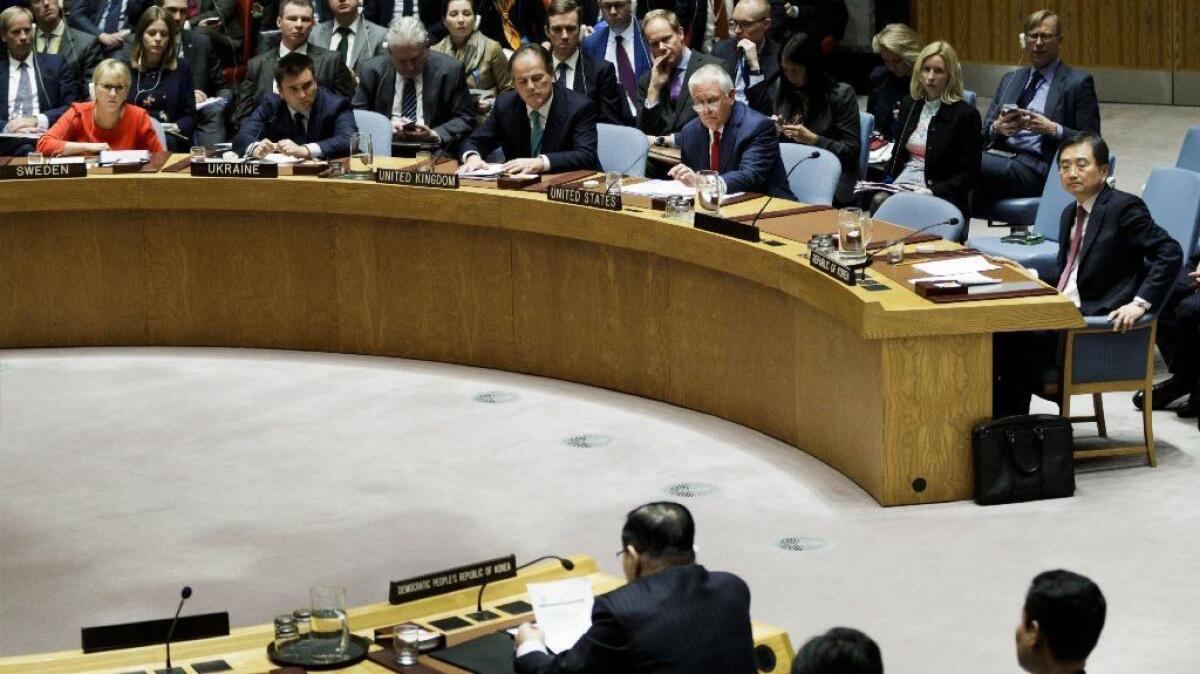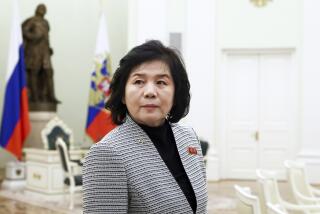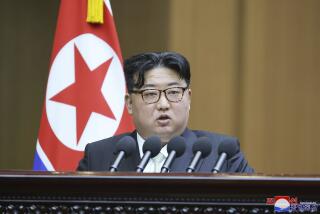Trump administration fans confusion over its stand on talks with North Korea

Secretary of State Rex Tillerson took the rare step on Friday of sharing a public stage with a senior North Korean official but fanned confusion about the Trump administration’s stance toward formal negotiations with Pyongyang over its nuclear arms.
According to a draft of his remarks circulated before a special session of the United Nations Security Council, Tillerson planned to say the U.S. would not demand preconditions to talks, apart from a “sustained cessation of North Korea’s threatening behavior” — that is, a pause in its provocative missile launches.
When Tillerson actually spoke, however, he omitted the reference to no preconditions and added, ”North Korea must earn its way back to the table.”
His altered remarks came days after the White House issued a statement that implied disagreement with Tillerson’s openness to talks with North Korea, a point of dispute between President Trump and his secretary of State in the past. State Department officials would not comment on why the change was made, except to say that Tillerson often revises speeches up to the time of delivery.
The White House statement earlier this week followed Tillerson’s appearance at the Atlantic Council think tank in Washington in which he appeared to break new ground by saying there would be no preconditions to talks. He invited North Korea to meet, even if it was just to discuss the weather.
Hours later, White House Press Secretary Sarah Huckabee Sanders released the statement, which alluded to the president’s coolness to negotiations without naming Tillerson: “The president’s views on North Korea have not changed. North Korea’s actions are not good for anyone and certainly not good for North Korea.”
On Friday, Tillerson insisted there was “no daylight” between him and Trump on North Korea, which has steadily progressed in developing missiles and nuclear weapons capable of attacking the U.S.
Yet the chain of events recalled Trump’s public rebuke of his top diplomat in October, when the president said Tillerson was “wasting his time” by attempting to coax Pyongyang into talks. Trump acted just after the secretary of state had met with China’s leaders on the subject.
Speaking to reporters after his U.N. speech, Tillerson said the United States was militarily prepared to respond “should something go wrong” but that he continued to hope diplomacy would prevail. He added that the “communication channels remain open.”
“They know where the door is,” he said of the North Koreans. “They know where to walk through that door when they want to talk.”
In his speech, Tillerson said a U.S.-led “pressure campaign” that includes rallying countries across the globe to join in enforcing economic and diplomatic sanctions against North Korea “must and will continue until denuclearization is achieved.”
Sitting across the Security Council’s marble floor was North Korea’s delegate to the U.N., Ja Song Nam, who had been invited to participate. He said his country’s development of nuclear weapons was for defense against U.S. “threats and blackmail.”
“If anyone is to blame for it, the U.S. is the one who must be held accountable,” Ja said.
Trump, in Washington, was asked by reporters if he would support unconditional talks with North Korea, but he did not answer directly.
“Well, we’re going to see what happens with North Korea. We have a lot of support. There are a lot of nations that agree with us — almost everybody,” Trump said. He added that while China, which controls almost all of Pyongyang’s trade, is cooperating, Russia needed to do more.
“We’d like to have Russia’s help,” Trump said. “Very important.”
He said he raised the issue in a telephone conversation with Russian President Vladimir Putin on Thursday.
For more on international affairs, follow @TracyKWilkinson on Twitter
More to Read
Start your day right
Sign up for Essential California for news, features and recommendations from the L.A. Times and beyond in your inbox six days a week.
You may occasionally receive promotional content from the Los Angeles Times.







